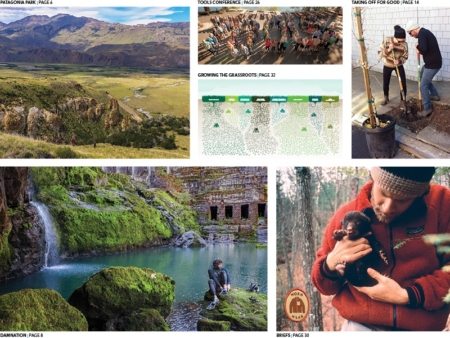Shopping Consciously for the Holidays
Nicole Bassett is Patagonia’s Social Responsibility Manager. As such, she is charged with traveling the world to visit our factories and verify the integrity of their manufacturing process. Thanks to her unique expertise, she gets peppered with questions from people eager to spend their dollars in the most beneficial way possible. In today’s post, Nicole shares socially responsible shopping tips for the remainder of your holiday season.
As a Patagonia Social Responsibility Manager, I routinely review factory working conditions. I have been asked a lot of questions lately by friends looking to buy their Christmas presents, questions like: “Is it OK to buy from Company X?” or “What are the working conditions like at Company Y?”
It is great to hear from people who want to put their money toward companies that care about the working conditions and the health of the workers who make their products. These are good questions since there are a lot of companies that have great programs and are really making a difference. There are also other companies that at least monitor their supply chains. Then, unfortunately, there are brands that do nothing at all. Figuring all of this out takes some work. Each dollar we spend in the market is a vote of support to this brand or that brand.
So what’s my response to my friends? I would like to share it with you:
1.) If you really like a brand, research them – check out their corporate website and look for information on corporate social responsibility or fair labor practices and see what work they are doing in this area. Good questions to ask:
Do they have a code of conduct?
Do they monitor their supply chain?
Do they belong to an organization that is dedicated to fair labor like the Fair Labor Association, the Ethical Trading Initiative, the Clean Clothes Campaign, or the Fair Factories Clearinghouse?2.) Use your voice – companies listen to their stakeholders. For example; if there is a company doing the right thing, let them know you are supporting them. If, on the other hand, there is a company doing nothing at all, let them know how important social responsibility issues are to you.
How do you get heard?
Send a letter.
To make it easier, I’ve provided a letter you can use as a template (Download social_responsibility_letter.doc). Please make sure to add your own comments. Then, go to the company’s website, do some research, and find the name of the CEO, the Director of Corporate Social Responsibility or a person in charge of fair labor practices. Send your letter to them; let them know your concerns.
Some additional tips for your letter:
– Provide options and information for the company. The idea of Corporate Social Responsibility may be new to them; make it easy for them to learn more.– Show you’ve done your homework on the company. Praise actions of theirs you admire; offer suggestions for improvement that are specific and clearly applicable to their business.
– Be willing to risk dialog. It’s easy to shy away from providing personal information, but lasting change only comes about through dialog, and companies will not be able to ask further questions (or provide you with thanks!) if they cannot get a hold of you.
Happy Holidays and enjoy your conscious shopping!
Many thanks to Nicole Bassett and members of our Environmental Team for providing these tools and tips for consumer advocacy. For a great news piece on this issue, check out NPR’s Dec. 15th story: Going Green: A Hard Sell for Consumers? We’ve also provided a list of recommended websites where you can learn more and get involved.

